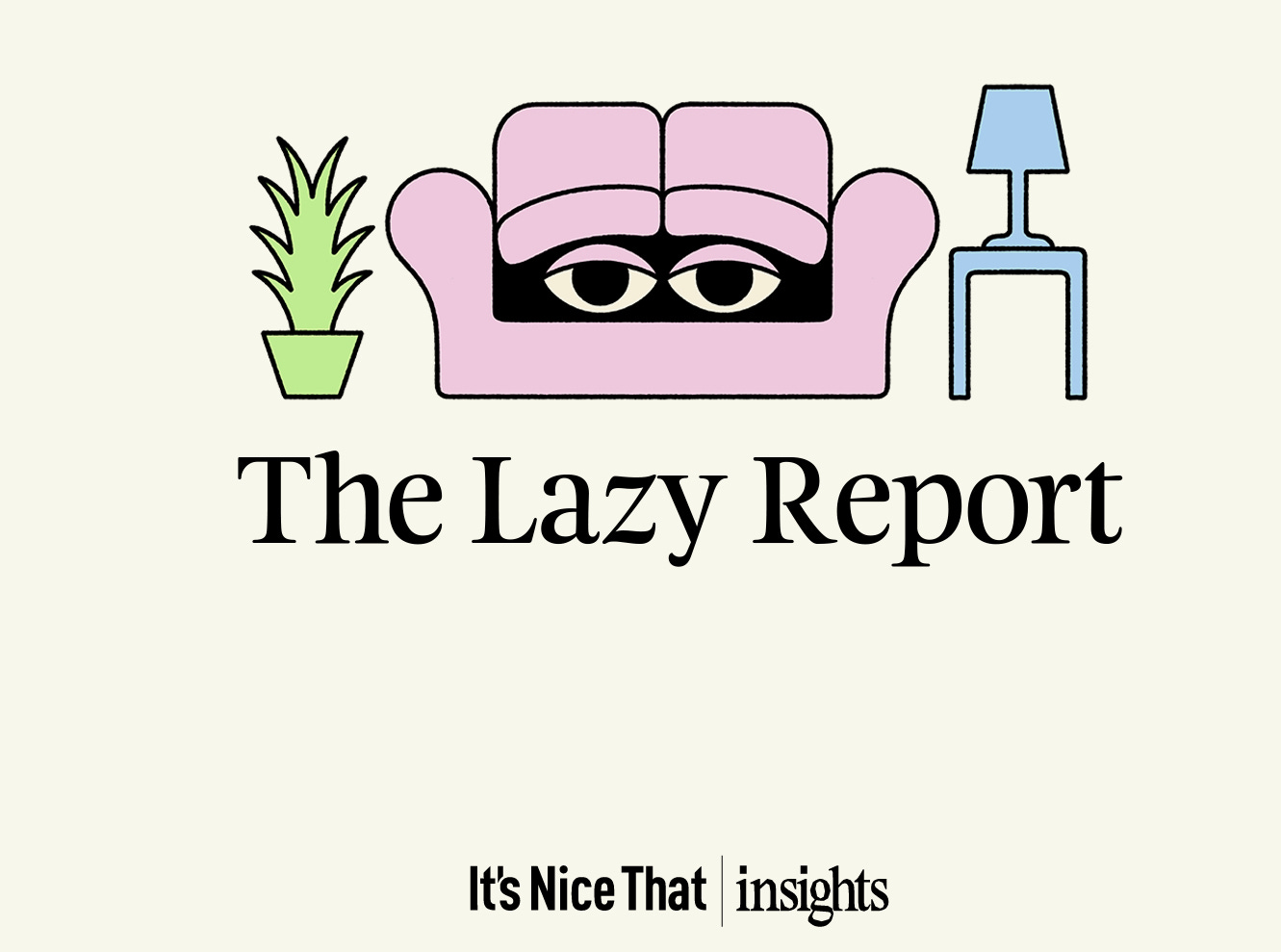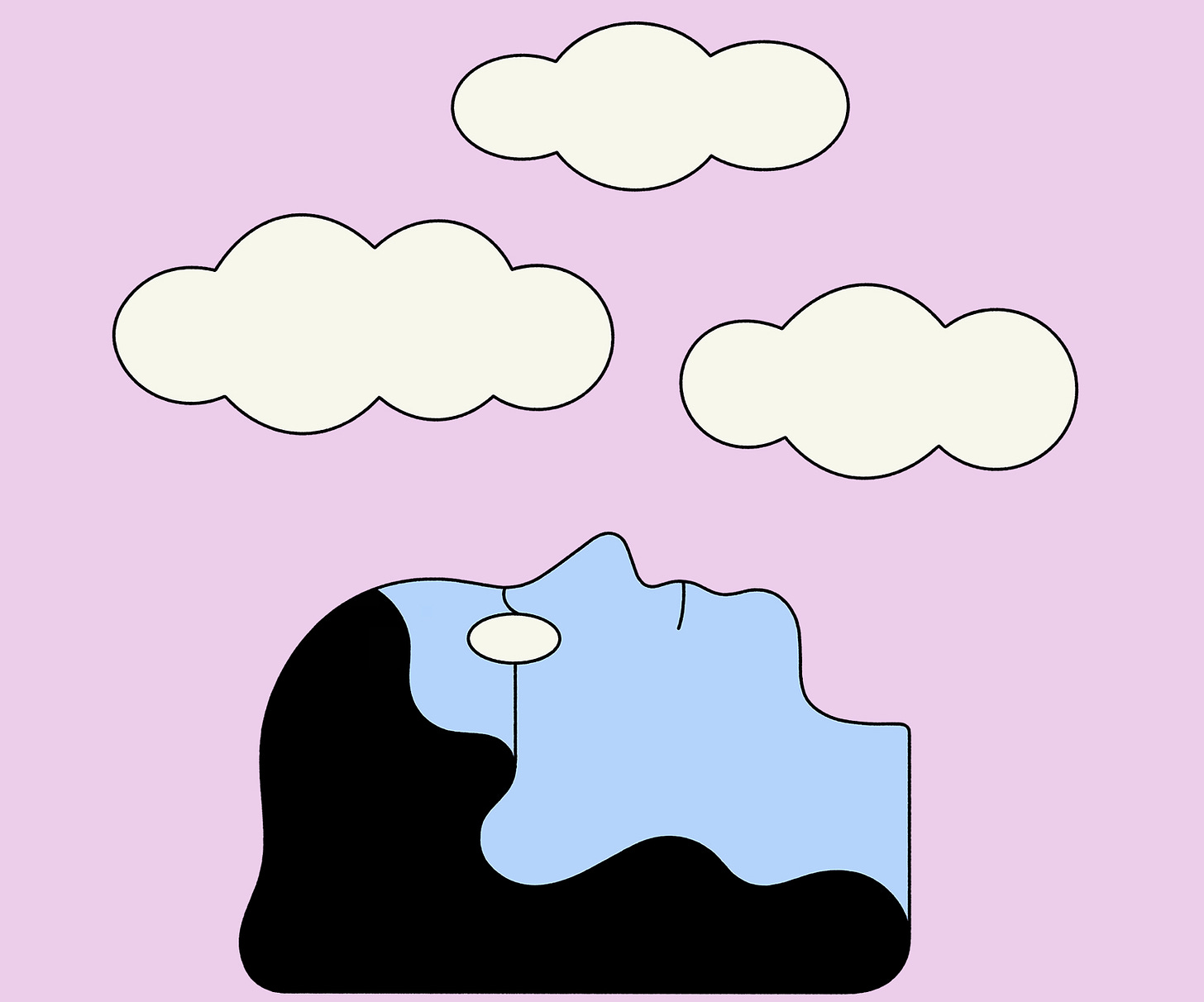Welcome to Just Two Things, which I try to publish three days a week. Some links may also appear on my blog from time to time. Links to the main articles are in cross-heads as well as the story. A reminder that if you don’t see Just Two Things in your inbox, it might have been routed to your spam filter. Comments are open.
1: In praise of laziness
What a pleasure to read something that is more or less a manifesto in praise of laziness. ‘The Laziness Report’ was produced last month by the art and design site It’s Nice That, and seems to be the first publication of an ongoing research campaign. ‘The Laziness Report’ can be downloaded from here, in exchange for an email address.
It starts from an attack on the notion of ‘productivity,’ which has underpinned notions of work for the last century or more:
From agencies to individuals, creativity is not only judged on the quality and scope of the work, but also on the frequency with which that work is created. This amount of pressure increases a sense of competitiveness among the creative community, but crucially it makes it harder to actually produce anything, too... (T)he key to creativity might have less to do with productivity and more to do with being “lazy”.
There’s three sections here, about ‘the Lazy Movement’, ‘Can Laziness Aid Creativity?’, and ‘Facilitating Laziness’.
The first section takes stock of the way in which the pandemic changed perspectives on the way we balance our lives. It quotes an Adobe report, ‘The Future of Time’, which argued that
“Covid-19 changed how we think about time – from putting in longer hours to feeling pressure to be ‘always on’”.
Microsoft’s 2022 Work Trend Index, with a US perspective, found that a quarter of those who had left their jobs in the so-called ‘Great Resignation’
stated “personal wellbeing or mental health” as the most popular reason, followed by “work-life balance”.
The pandemic also made us more aware of necessary work. Asana’s ‘Anatomy of Work Global Index’ found that
Work about work remains a persistent threat, with roughly 23 hours of the 40-hour workweek lost to menial, repetitive tasks.” Every week workers surveyed were additionally found to lose “an average of nearly three hours on unnecessary meetings”.
This last one sounds a bit like David Graeber’s argument about ‘Bullshit jobs.’
The second section is about whether laziness can aid creativity. We know from other research that the answer to this is yes, so I’m not going to dwell on this too much.
This section, by Madison Utendahl, discusses whether laziness is “a lost art”. She was sent on a journey in discovery of this after a conversation with her therapist which took her to John Eastwood’s book Out of My Skull: The Psychology of Boredom and Alex Pang’s Rest. (I wrote about Pang’s work here.) She’s changed the way in which her agency works as a result:
When I look back on my journey to laziness, I realise that it is rooted in a release of expectations and selfworth... Rather than shame ourselves for taking it easy, kicking back and doing absolutely nothing, what if we celebrate that we are giving our abundant creative brains a moment of stillness and presence to dream and imagine?
(Image: The Laziness Report. It’s Nice That)
There’s also here an interview with the bare minimum collective, whose manifesto can be found here. One of the collective members, Christie Costello, says,
We are against wage labour, we’re against the grind, we’re against work in the service of capital – but we’re not against work in the service of each other.
The report finishes with three tips for facilitating laziness:
Learn how to say no
Be high maintenance; and
Pick the optimum time to be lazy.
Some of the detail here is familiar (saying no to meetings, for example), but it’s maybe worth stopping briefly on being ‘high maintenance’. They recommend using Eisenhower’s matrix of Urgent (low or high) and Important (low or high), which gives permission to ignore certain things, defer them, or to pass them on.
The report concludes,
we hope The Lazy Report can act as a comforting reminder that taking a step back won’t necessarily hold you back. Society has always placed an unfounded worth in productivity, from new year’s resolutions, fresh starts or “day one” beginnings – but do they actually work? This year, we’ll be testing if defocusing may in fact be the key to focusing, albeit just a little later on.
(Image: The Laziness Report. It’s Nice That)
2: Living with the war
The coverage of the Ukraine war typically falls into two types. First, there is the endless coverage of military strategy and tactics, with the associated politics that goes with it. Second, there is the social commentary coverage about displaced people, refugees, the outward effects of the war on civilians. There’s not so much on the internal effects, although some of the coverage about culture starts to scratch that surface.
So this is a bit of a preamble to a piece called ‘The Tale of Fear’, published on the first anniversary of the war by Yevgenia Belorusets in her war diary Isolarii.
It’s a long piece that breaks into two halves: the first part is a childhood memory, of being three or four, the second from last month, listening to news of a Russian breakthrough at the front at the town of Soledar:
The city of Soledar is said to be completely destroyed in some parts and occupied by Russian forces in others. In this case, further fighting will take place right in the city, a city where elderly people are still living, where mothers with the smallest children in strollers can sometimes be seen on otherwise empty streets. Hardly any journalist will reach this city in which no house or apartment offers shelter, a city of which so few are even aware.
(Soledar in April 2022. By Abramovich Rublevsky, screenshot by Wikipedia. CC BY 3.0)
As she says, there’s a kind of psychological ‘escape area’ in the coverage of the war. Rather than focussing on the impact of the war on the people of Soledar, it’s easier to think about “war geography enlivened by descriptions , and war analysis where countries or even national associations are what matters, not people”:
In order to forget today and Soledar’s shot-up streets for a little while, I listen again and again to descriptions of how heroically Ukraine is fighting. This phrase carries me away to a reality where it’s not just a small, Russian-speaking, depressed industrial city that loses its existence, but where a humongous subject—in which I myself am a small inconspicuous particle—acts and makes decisions, shows its good side to the world, is praised and almost becomes immortal.
This is a necessary defence, because the psychological sense of the “front line”—a word from history books, as she says—is of something that can be broken or ruptured. It’s not just a piece of geography or a military artefact, but that has both a personal and collective meaning:
inside the war it becomes a kind of skin that convinces you even more thoroughly that you belong to a collective body. When the skin is broken, blood always flows from the wound. Although the front line, if you think for a minute longer, is actually a constantly bleeding wound, in the news as well as in your own war mythology, it appears as something whole, protective, which might even sometimes move or be broken through, but only when it’s the front line of the enemy.
The connection between the two halves of the article is that she spent the first night of the war in the room she had slept in as a child, in her parents house, surrounded by the objects of her youth:
The books I’d bought at some moment or other looked at me hauntingly. The traces of everything that had happened in those days when such a war was hardly possible. The pictures of my old friends on the walls seemed more present or realistic than all the old publications. They were speechless in a way, and ready to absorb new meanings.
And although we think of the past as being somehow fixed, neuroscience tells us that we remake it every time we remember it. In the diary entry she described realising, on that first day, that her memory “was unprotected territory”:
Memories can be occupied just as cities can. But for the most part they do not possess the modern defensive weapons that Ukraine asks for again and again. The fear of losing one’s past in a present act of violence is perhaps the only fear I can clearly picture in writing this text.
It’s hard to convey the full force of the diary entry from a set of extracts. It’s more cumulative than that. So please: read the whole thing yourself.
j2t#430
If you are enjoying Just Two Things, please do send it on to a friend or colleague.






